Post by Dave on Oct 13, 2010 20:48:57 GMT
Wednesday 13th October 2010
After Cotehele House was mentioned on here a week or so ago I could not believe that Carol and I had not been there as we thought we had done all the National Trust properties and don’t know how we over looked this one and so today we decided to go there and what a great whole day we have enjoyed on the whole estate.
We left home around 10am and I decided to use the sat nav on my HTC Desire phone for a bit of fun and what fun that turned out in the end and It sure took us on roads (if they could be called roads) I would never have known about or chosen to drive on. It was all going so well and we went over the Tamar Bridge and turned off right at the roundabout after the bridge that takes you to St Mellion.
Then the silly thing told me to take a right turn one hundred yards short of a roundabout and then the fun really began. The lane was so narrow and one downhill left hand bend was so tight and had such a camber on it I don’t know how I got the car around it. Worse was to come as the road them was full of hundreds of pheasants and Carol wanted to get out and walk in front of the car to ensure I did not run any over, bless her
But give the thing its due, we stuck to the instructions it was giving us and sure enough it took us there only we decided not to leave after our day at Cotehele the way we had come. You turn off the road and over a narrow bridge and very soon you are driving past the buildings that makeup Cotehele Quay and then go up a long driveway going through some gate pillars to get up to the main house itself.
We parked the car and made our way to the visitor’s reception building where we flashed our membership cards and headed for the house as we wanted to get that part done so we could spend the rest of the day exploring the whole estate.
The house is composed of intimate medieval rooms built around three courtyards. The Great Hall has a superb timber ceiling, and boasts an enjoyable collection of arms and armour. The tower, which contains 3 bedrooms, was built in 1620. Charles I is said to have stayed here.
The present house was built between 1485 and 1539 during the reigns of Richard III, Henry VII and Henry VIII. Sir Richard Edgcumbe, was rewarded for his loyalty to Henry Tudor at the Battle of Bosworth (the battle was in 1485), started to completely remodel the original 13th century property. Following Richard Edgcumbe's death 4 years later at Morlaix in Brittany, his son Sir Piers Edgcumbe (1472-1539) completed the new house. The local granite and slate used to build the house is particularly durable and this fact together with Sir Piers' son, Richard, building a new family seat, Mount Edgcumbe in 1553, resulted in Cotehele being comparatively little altered over the years. The family moved to Mount Edgcumbe in the 17th century but they continued to own Cotehele until 1947 when it was accepted by the Treasury in payment of death duty and given to the National Trust. This was the first property in Britain to be acquired by the Trust via the "in lieu of death duty" route.
We wondered around the outside of the house viewing all the courtyards and then made our way to the main courtyard where you enter the house into the Great Hall and as I got to the entrance I was just putting my camera away as the National Trust do not allow you to take pictures inside the properties, when the man told me it was allowed at Cotehele as long as you don’t use any flash.
Thankfully my Fuji S9500 has a great natural light setting that works so well in very low light and just as well as while some of the out buildings have electricity the main house never had it installed and to this day that is how it has remained. It is very dark in the whole house as light is kept out of the house as much as possible due to the fact that every room you go in has full length tapestries hanging on every wall.
What is so good about Cotehele is everything you see in the house belongs to the house and in the rooms upstairs there are so many wonderful four poster beds to see, in many other National Trust properties the furniture you see was never a part of the house and so often has been taken from other properties just to try and recreate the period of the house.
Really loved the house and you get to see a good number of rooms and learn from the cards to be found in each room not only the history of the house itself but what the rooms were used for and who used them as well.
We left the house and went around to what would really be the front of the house that looks down to the river and way beyond and its from here we walked down through the Valley Garden only it did not look its best due to the time of the year.
Once at the bottom of the Valley Garden we turned right and headed for Cotehele Quay where we were able to buy some pasties from the Edgcumbe Arms that is now a tea rooms and sit on the Quay close to the Shamrock and enjoy the views while eating our lunch
The Shamrock is a 57ft ketch-rigged vessel of 1899. It transported cargoes on the Tamar and then worked as a diving tender and salvage barge before being acquired by The National Trust in 1974. She is now co-owned by the National Maritime Museum, and has been restored to sea-going condition. Normally seen in her dock at Cotehele, she does make occasional trips on the Tamar.
Time to get moving again and we walked back to the bridge we came over to get to the Quay only we did not go over it taking a path instead through a wood beside a river heading for Cotehele Mill. This was a full working Mill and still today it produces flower two days a week only due to the Mill being changed over to electro power, production has stopped until the work is completed.
The water wheel was working and turning the grinding stones inside so it was well worth the walk to the Mill and the man who gave us a talk about the Mill when we got there talked about the Weir that was nearly a mile upstream.
As we retraced our steps to get back onto a path that would take us back to the house we saw another path with a sign pointing the Weir was along that path and so off we went in search of the weir and yes it was a good mile from the mill but once again worth making the effort for as it was a delightful walk once again through the woods beside the river.
We turned around to head back toward the Mill and Carol noticed a very steep path on our left climbing up to the top of the valley and after a quick chat about it we decided to be adventurous and just take it and see where it took us. It was a real leg muscle pulling climb for sure and after some time we came to a gate that went out onto a road and we went through the gate and thankfully saw a sign pointing us back to the house but it was a fair old walk back I can tell you.
Once back at the house we had to go through the reception again to gain entry into the house grounds as there were still two things we wanted to see and do before our day at Cotehele was over. The first was a walk around the Upper Gardens and then lastly walk to the Prospect Tower.
So we did the garden walk and then left the grounds of the house and entered a field full of very young steer who were far to brave if you ask me and did not want to move out of our way as most cows do.
It was while at Prospect Tower I let myself down again a bit and I really knew what was likely to happen and I should have just gone and looked at the thing and left it at that.
The National Trust build a staircase inside the tower a few years ago and the sign on the doorway warns you it’s a very tight twisting stairway and after the first few steps due to no lighting inside the tower you end up in complete darkness until you get near the very top of the tower.
Carol knows only too well I can’t stand heights or being in very confined spaces even more so when I’m in complete darkness but she wanted to go to the top of the tower and enjoy the wonderful views and I decided I would give it a go.
I should have asked her to stay just in front of me but she went bombing up the staircase to the top and when I got over three quarters of the way up I just became very disorientated and bloody froze and grabbed hold of the centre pole to scared to move either up or back down.
I felt a fool and she did her best to try and encourage me to make the last few stairs to the top but in the end she had to come back to where I was and help me get back down and out of the tower. Never mind its better to try and fail and not try at all and one of these fine days I will over come that final hurdle in a tower somewhere else and wonder what all the fuss was about.
Time to head back to the house and have one last look at it from the outside and look down across the valley to a wonderful viaduct that we saw a train go over and maybe Barton Downs will be able to tell me the name of the viaduct and how I can get up close to it.
5pm now and back sat in the car after spending six whole hours at Cotehele and what another great time I have had in the company of the one and only Carol who continues to stick her fingers up at that nasty old cancer and won’t let it stop her doing all the things she wants to do in the company of the man who still thanks god for bringing her into his life.
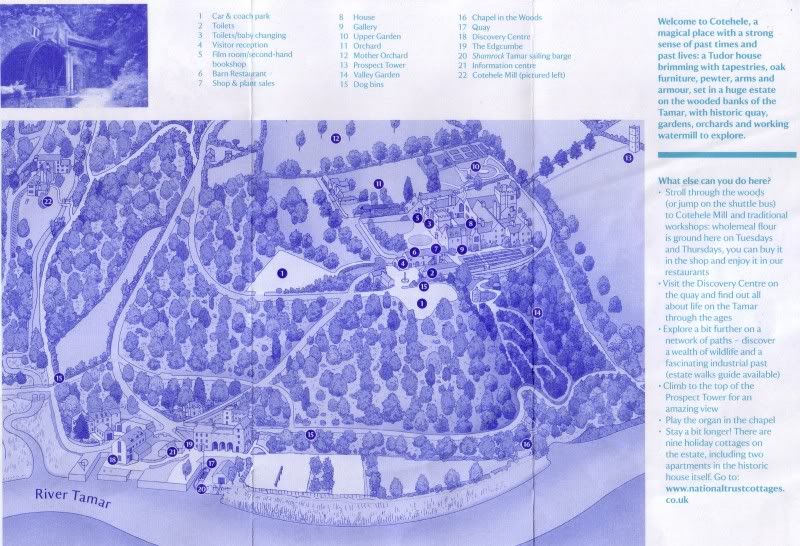
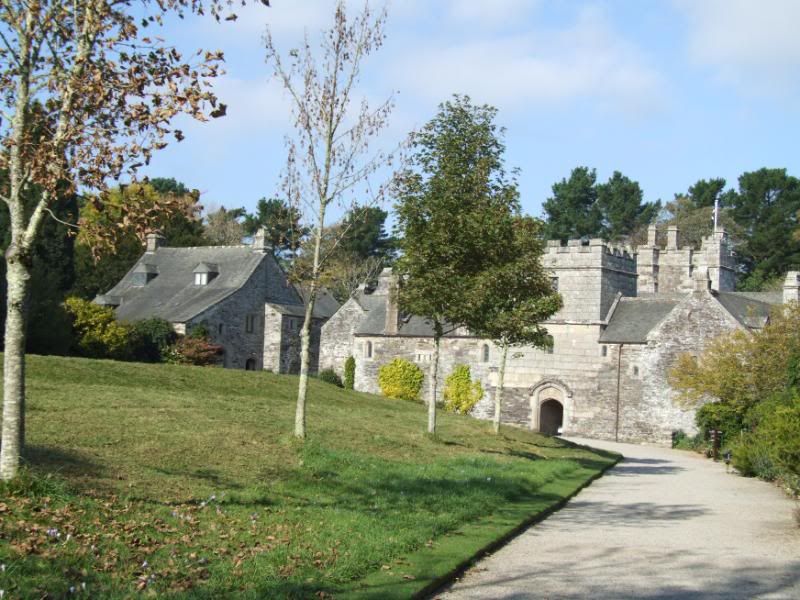
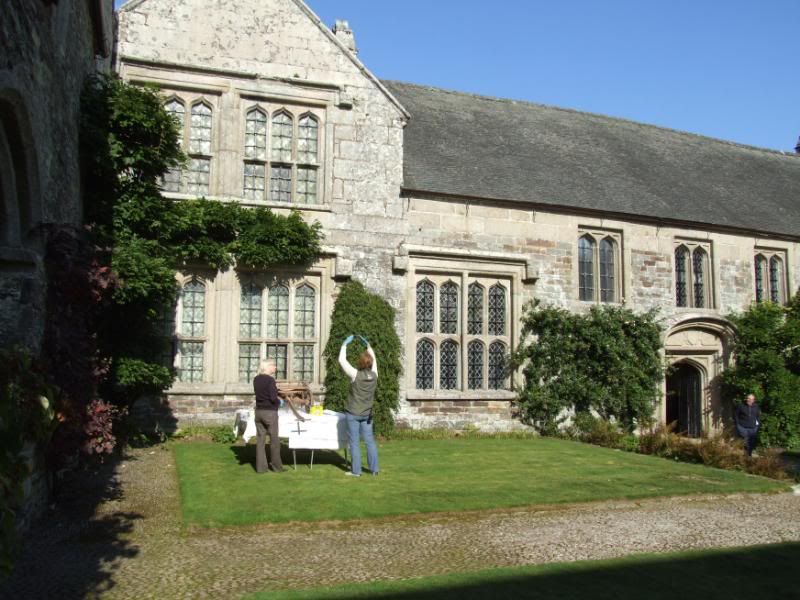
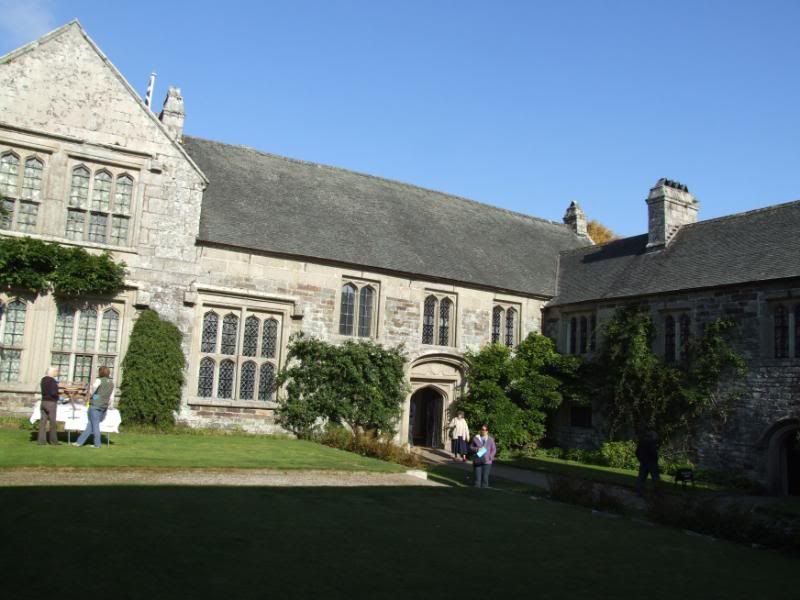
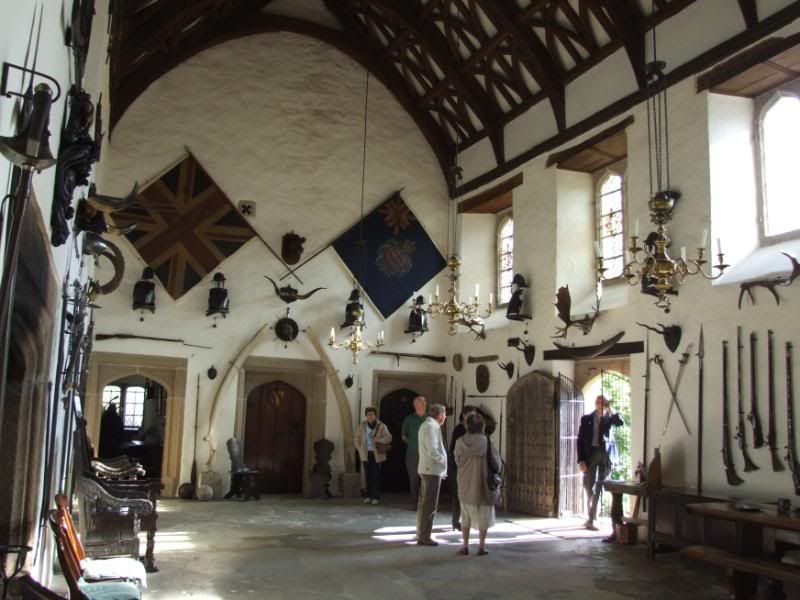
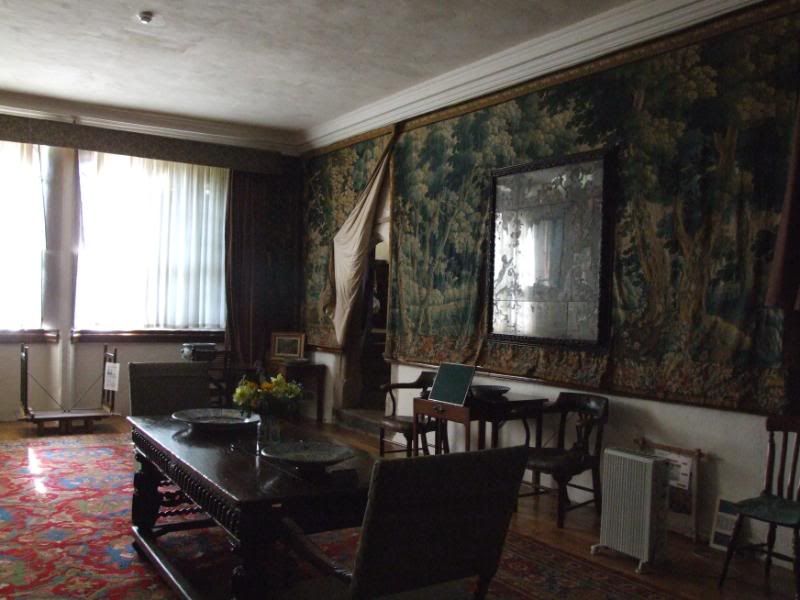
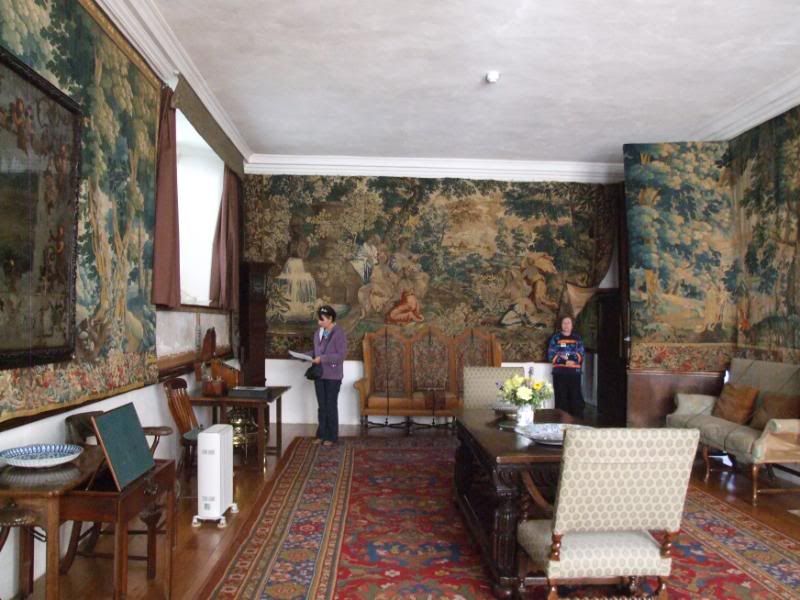
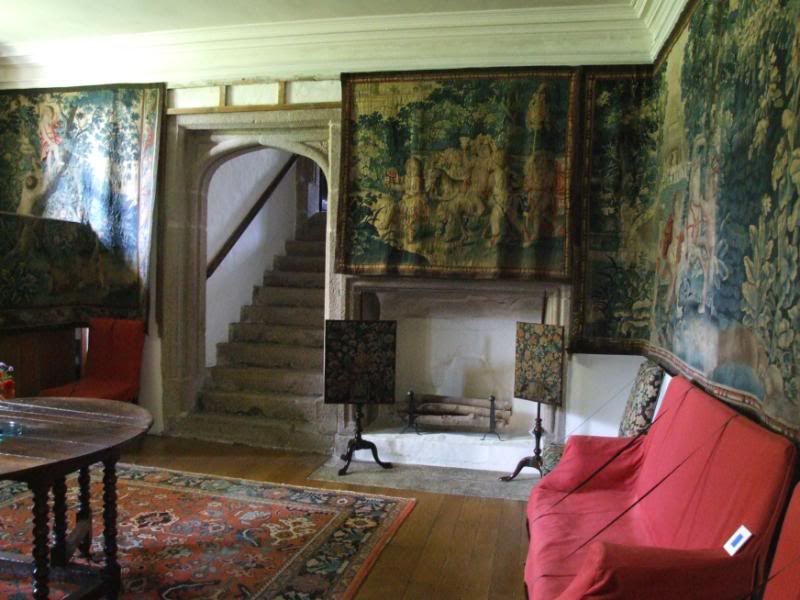
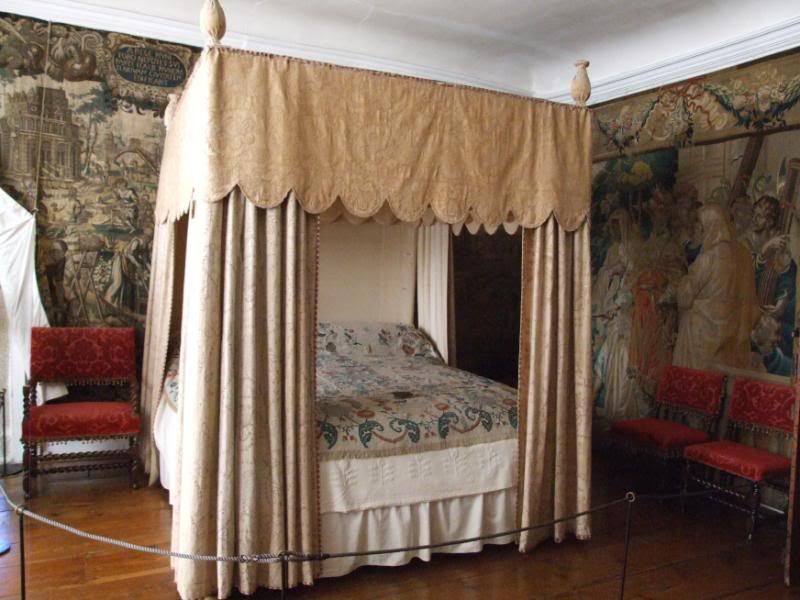
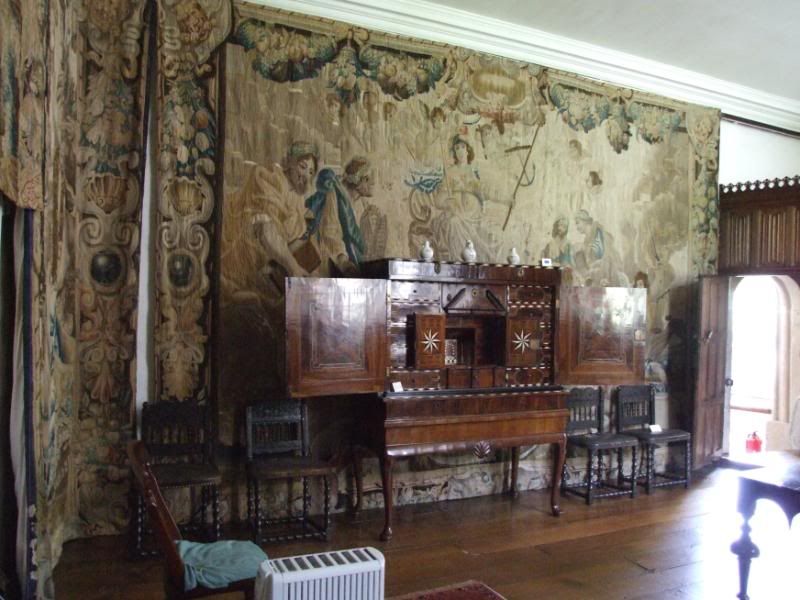
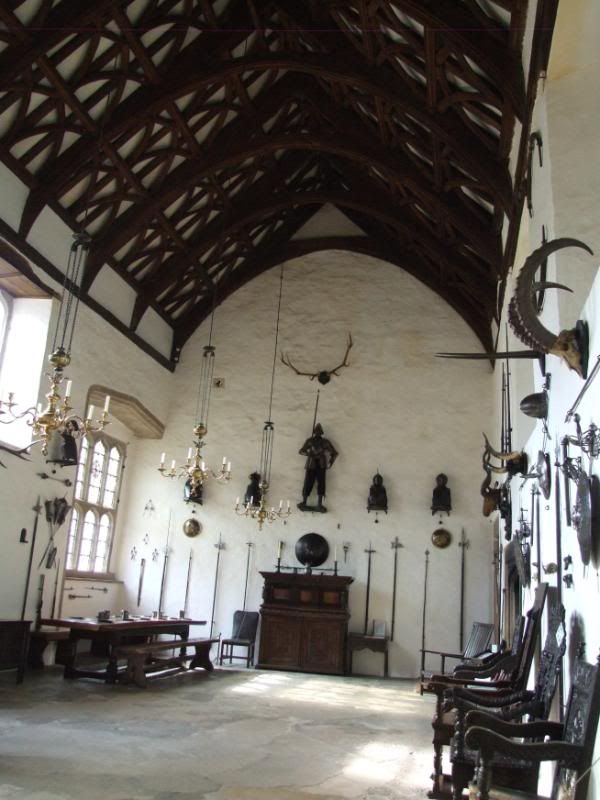
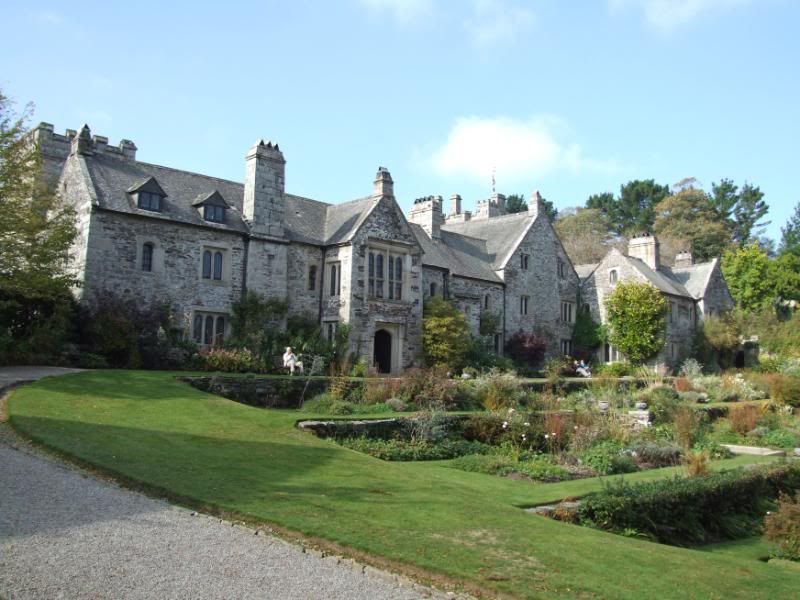
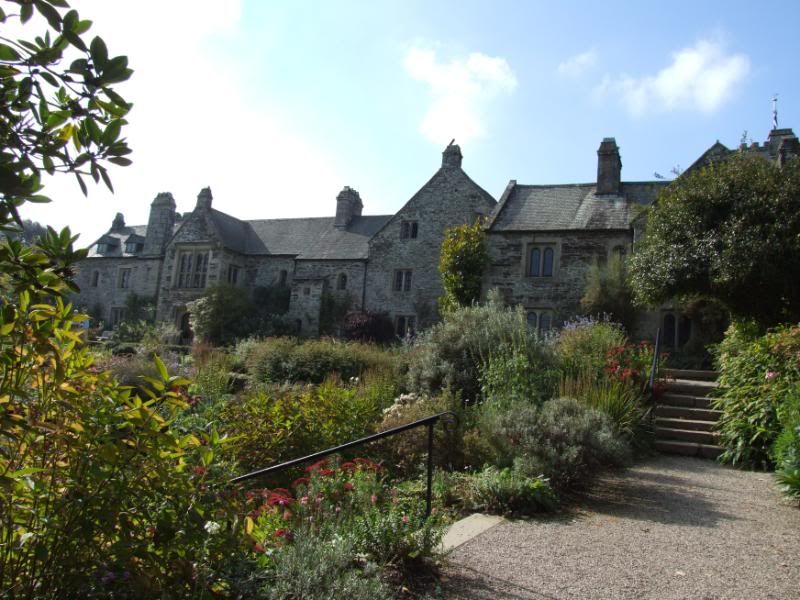
Down on Cotehele Quay
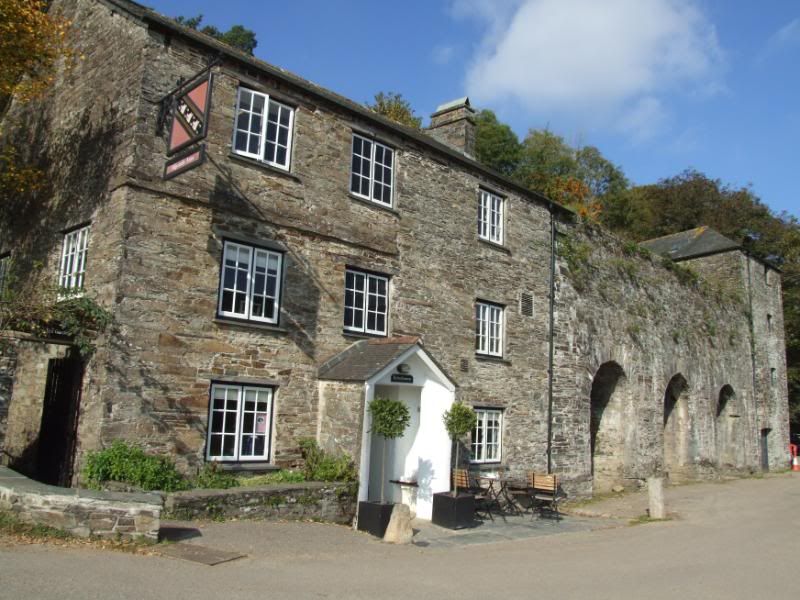
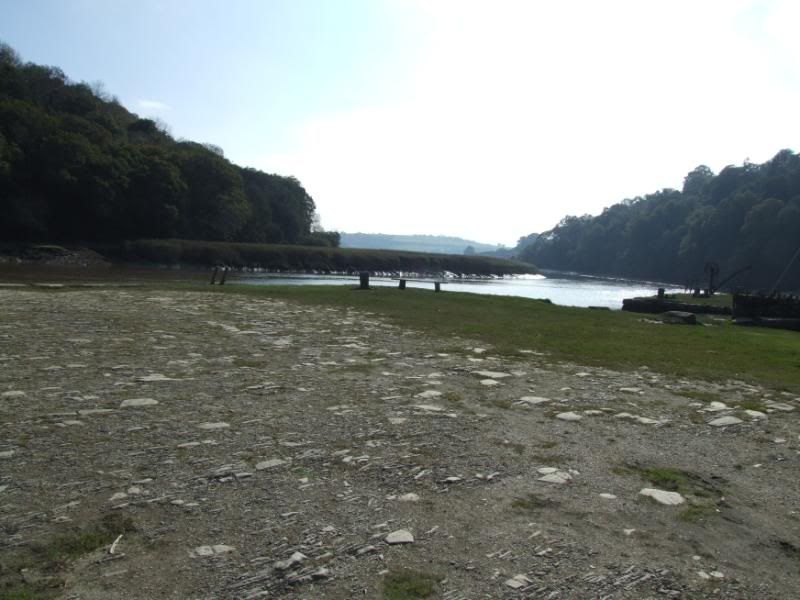
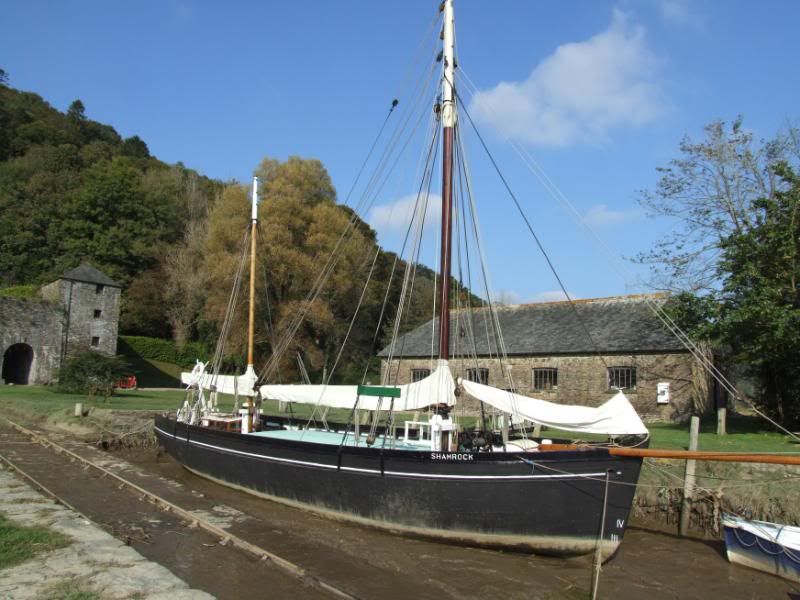
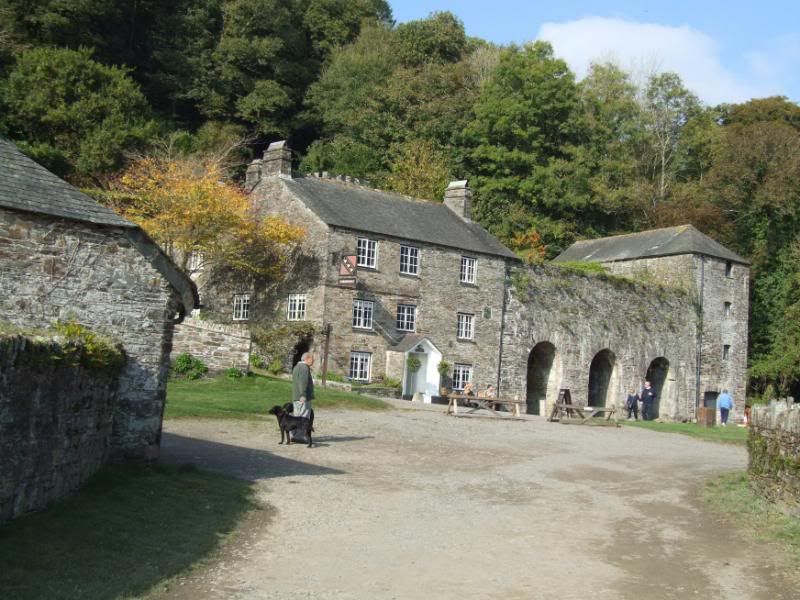
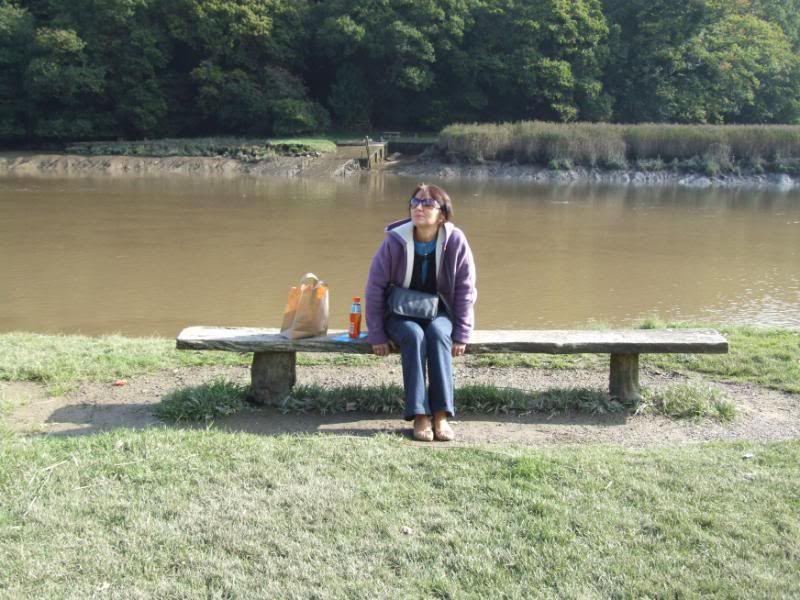
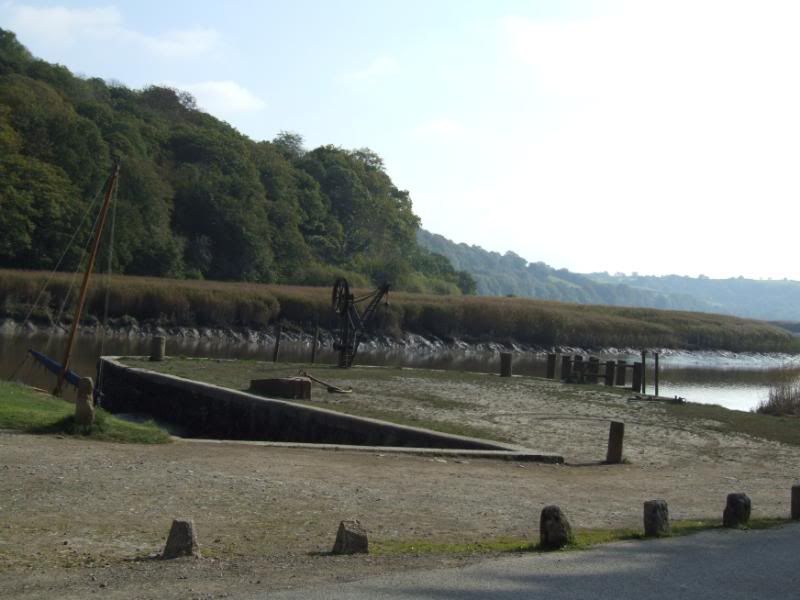
Off to Cotehele Mill
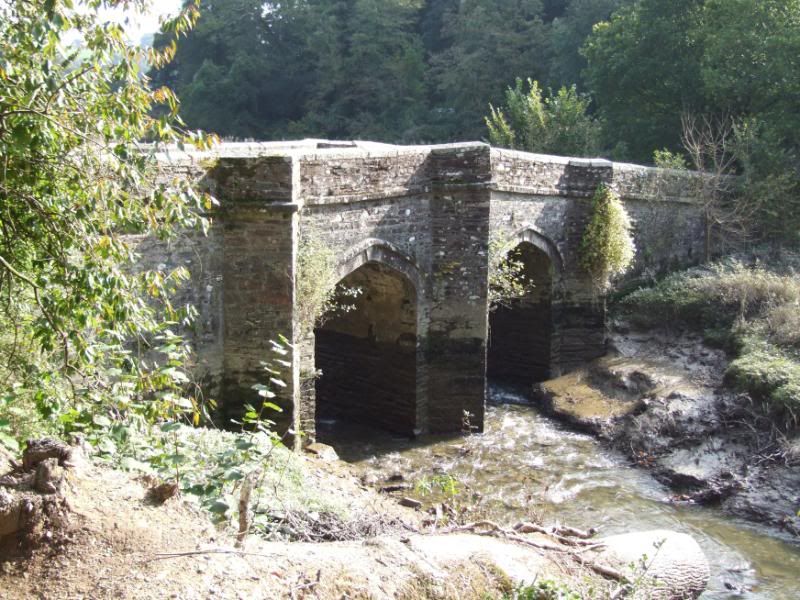
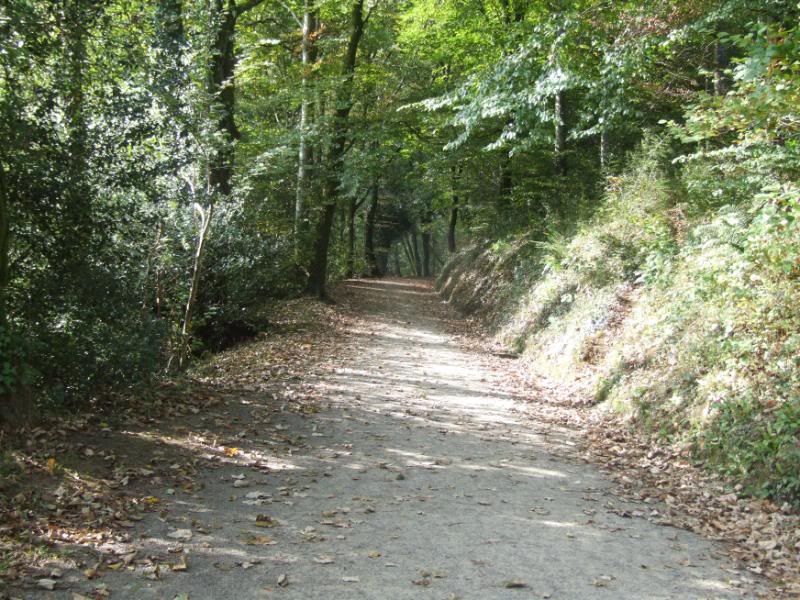
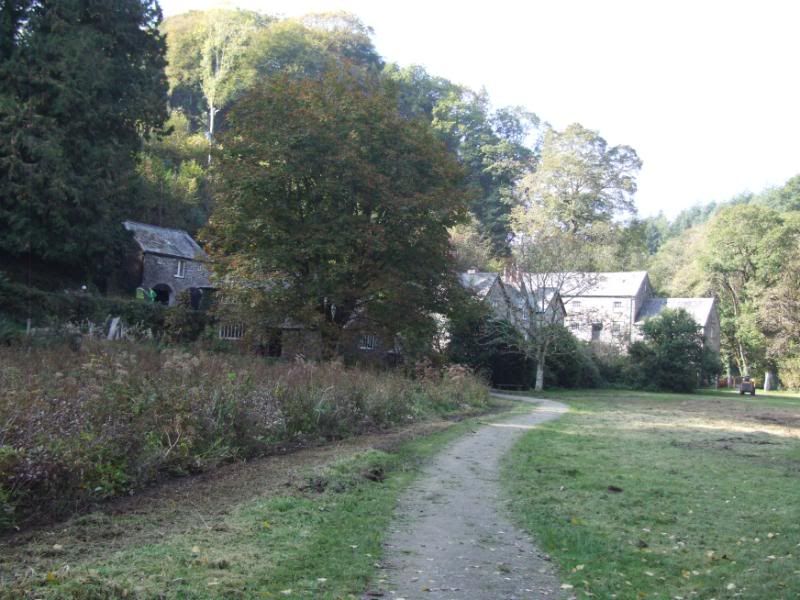
The Weir
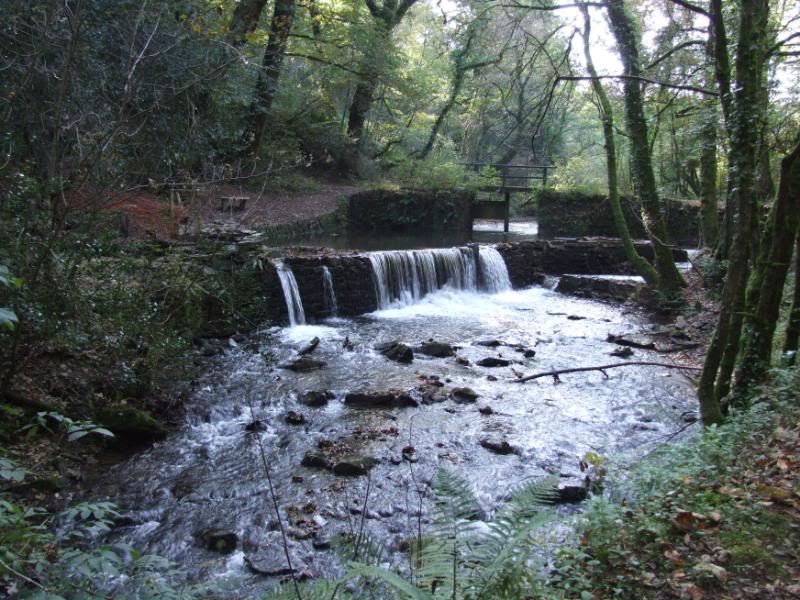
Back at Cotehele House
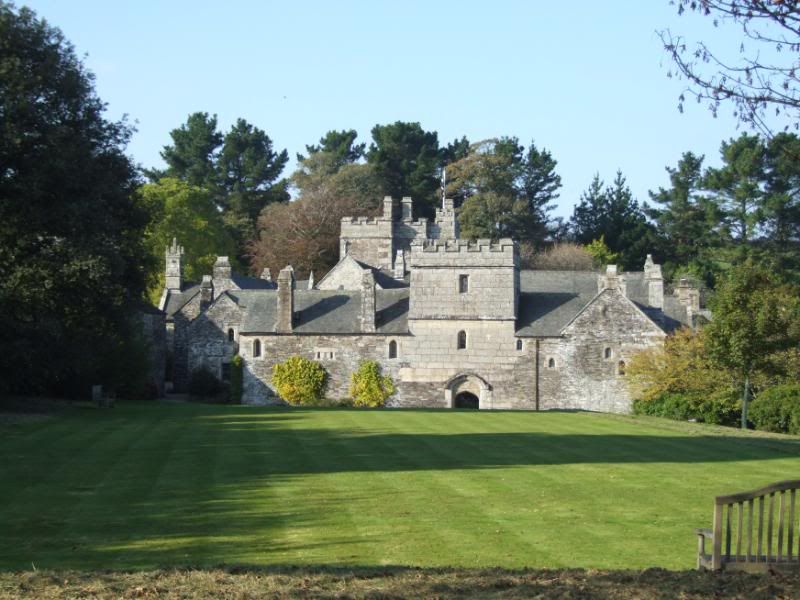
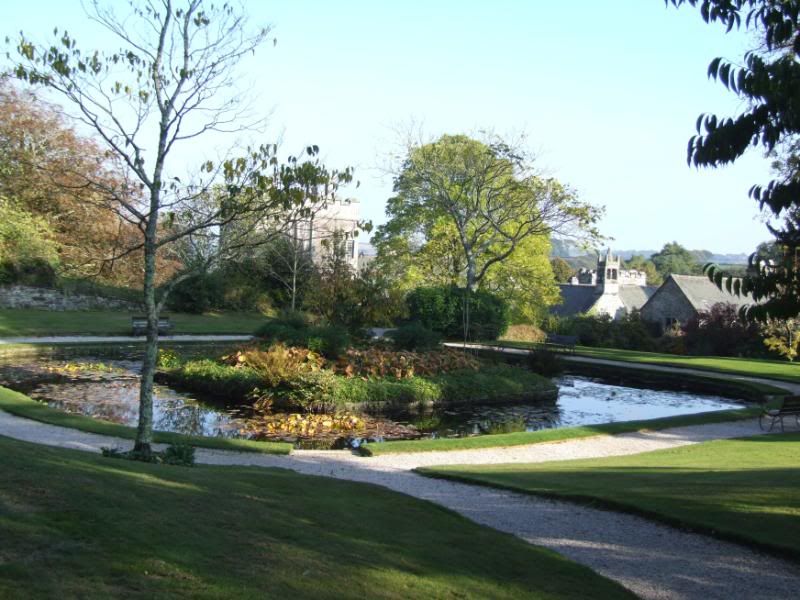
Prospect Tower
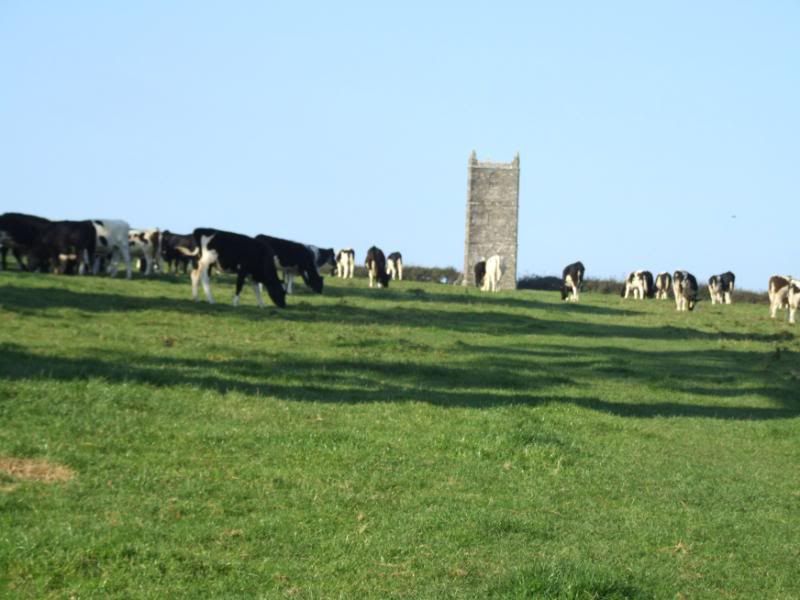
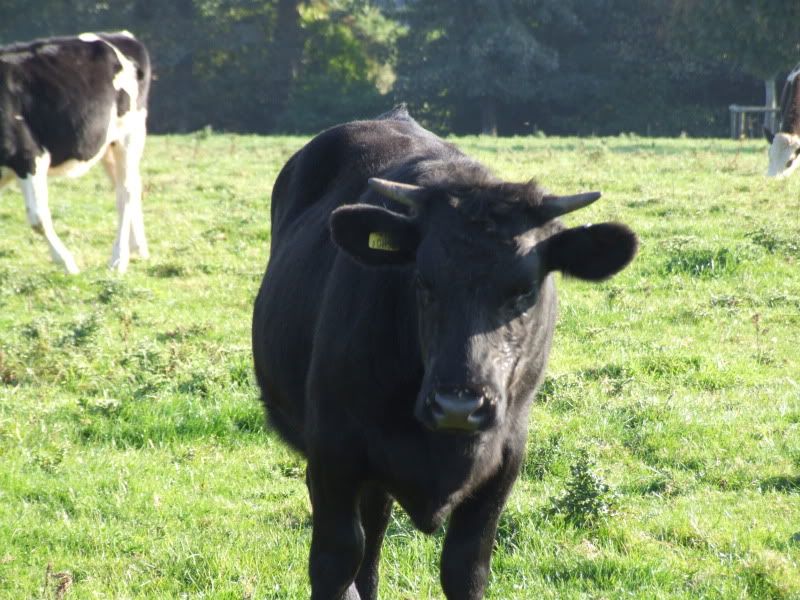
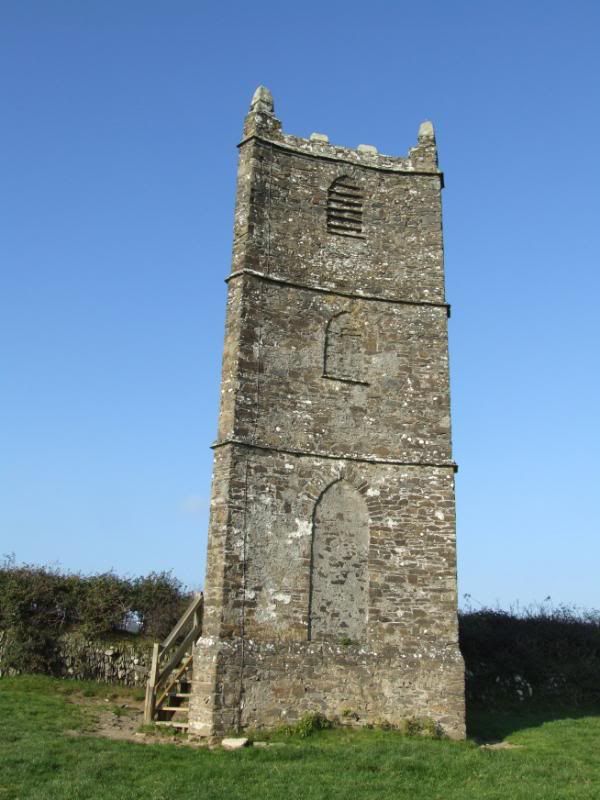
The Viaduct
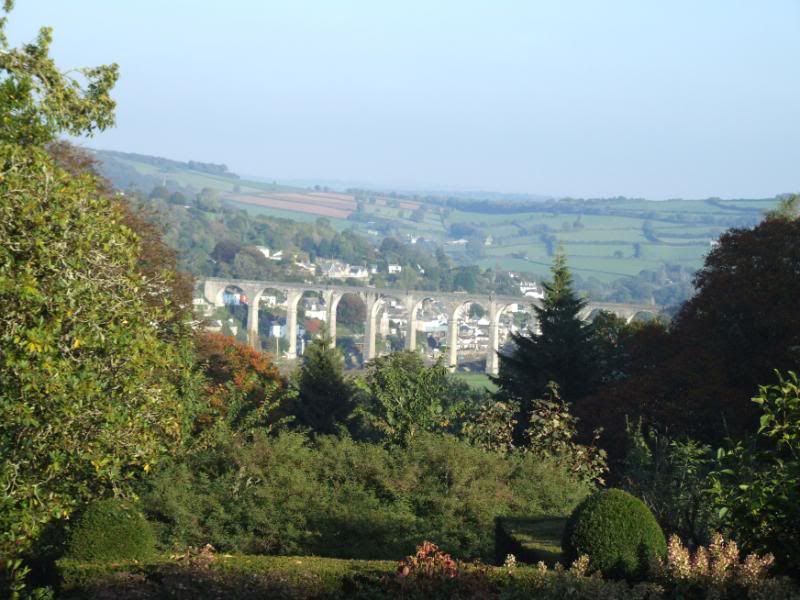
After Cotehele House was mentioned on here a week or so ago I could not believe that Carol and I had not been there as we thought we had done all the National Trust properties and don’t know how we over looked this one and so today we decided to go there and what a great whole day we have enjoyed on the whole estate.
We left home around 10am and I decided to use the sat nav on my HTC Desire phone for a bit of fun and what fun that turned out in the end and It sure took us on roads (if they could be called roads) I would never have known about or chosen to drive on. It was all going so well and we went over the Tamar Bridge and turned off right at the roundabout after the bridge that takes you to St Mellion.
Then the silly thing told me to take a right turn one hundred yards short of a roundabout and then the fun really began. The lane was so narrow and one downhill left hand bend was so tight and had such a camber on it I don’t know how I got the car around it. Worse was to come as the road them was full of hundreds of pheasants and Carol wanted to get out and walk in front of the car to ensure I did not run any over, bless her

But give the thing its due, we stuck to the instructions it was giving us and sure enough it took us there only we decided not to leave after our day at Cotehele the way we had come. You turn off the road and over a narrow bridge and very soon you are driving past the buildings that makeup Cotehele Quay and then go up a long driveway going through some gate pillars to get up to the main house itself.
We parked the car and made our way to the visitor’s reception building where we flashed our membership cards and headed for the house as we wanted to get that part done so we could spend the rest of the day exploring the whole estate.
The house is composed of intimate medieval rooms built around three courtyards. The Great Hall has a superb timber ceiling, and boasts an enjoyable collection of arms and armour. The tower, which contains 3 bedrooms, was built in 1620. Charles I is said to have stayed here.
The present house was built between 1485 and 1539 during the reigns of Richard III, Henry VII and Henry VIII. Sir Richard Edgcumbe, was rewarded for his loyalty to Henry Tudor at the Battle of Bosworth (the battle was in 1485), started to completely remodel the original 13th century property. Following Richard Edgcumbe's death 4 years later at Morlaix in Brittany, his son Sir Piers Edgcumbe (1472-1539) completed the new house. The local granite and slate used to build the house is particularly durable and this fact together with Sir Piers' son, Richard, building a new family seat, Mount Edgcumbe in 1553, resulted in Cotehele being comparatively little altered over the years. The family moved to Mount Edgcumbe in the 17th century but they continued to own Cotehele until 1947 when it was accepted by the Treasury in payment of death duty and given to the National Trust. This was the first property in Britain to be acquired by the Trust via the "in lieu of death duty" route.
We wondered around the outside of the house viewing all the courtyards and then made our way to the main courtyard where you enter the house into the Great Hall and as I got to the entrance I was just putting my camera away as the National Trust do not allow you to take pictures inside the properties, when the man told me it was allowed at Cotehele as long as you don’t use any flash.
Thankfully my Fuji S9500 has a great natural light setting that works so well in very low light and just as well as while some of the out buildings have electricity the main house never had it installed and to this day that is how it has remained. It is very dark in the whole house as light is kept out of the house as much as possible due to the fact that every room you go in has full length tapestries hanging on every wall.
What is so good about Cotehele is everything you see in the house belongs to the house and in the rooms upstairs there are so many wonderful four poster beds to see, in many other National Trust properties the furniture you see was never a part of the house and so often has been taken from other properties just to try and recreate the period of the house.
Really loved the house and you get to see a good number of rooms and learn from the cards to be found in each room not only the history of the house itself but what the rooms were used for and who used them as well.
We left the house and went around to what would really be the front of the house that looks down to the river and way beyond and its from here we walked down through the Valley Garden only it did not look its best due to the time of the year.
Once at the bottom of the Valley Garden we turned right and headed for Cotehele Quay where we were able to buy some pasties from the Edgcumbe Arms that is now a tea rooms and sit on the Quay close to the Shamrock and enjoy the views while eating our lunch
The Shamrock is a 57ft ketch-rigged vessel of 1899. It transported cargoes on the Tamar and then worked as a diving tender and salvage barge before being acquired by The National Trust in 1974. She is now co-owned by the National Maritime Museum, and has been restored to sea-going condition. Normally seen in her dock at Cotehele, she does make occasional trips on the Tamar.
Time to get moving again and we walked back to the bridge we came over to get to the Quay only we did not go over it taking a path instead through a wood beside a river heading for Cotehele Mill. This was a full working Mill and still today it produces flower two days a week only due to the Mill being changed over to electro power, production has stopped until the work is completed.
The water wheel was working and turning the grinding stones inside so it was well worth the walk to the Mill and the man who gave us a talk about the Mill when we got there talked about the Weir that was nearly a mile upstream.
As we retraced our steps to get back onto a path that would take us back to the house we saw another path with a sign pointing the Weir was along that path and so off we went in search of the weir and yes it was a good mile from the mill but once again worth making the effort for as it was a delightful walk once again through the woods beside the river.
We turned around to head back toward the Mill and Carol noticed a very steep path on our left climbing up to the top of the valley and after a quick chat about it we decided to be adventurous and just take it and see where it took us. It was a real leg muscle pulling climb for sure and after some time we came to a gate that went out onto a road and we went through the gate and thankfully saw a sign pointing us back to the house but it was a fair old walk back I can tell you.
Once back at the house we had to go through the reception again to gain entry into the house grounds as there were still two things we wanted to see and do before our day at Cotehele was over. The first was a walk around the Upper Gardens and then lastly walk to the Prospect Tower.
So we did the garden walk and then left the grounds of the house and entered a field full of very young steer who were far to brave if you ask me and did not want to move out of our way as most cows do.
It was while at Prospect Tower I let myself down again a bit and I really knew what was likely to happen and I should have just gone and looked at the thing and left it at that.
The National Trust build a staircase inside the tower a few years ago and the sign on the doorway warns you it’s a very tight twisting stairway and after the first few steps due to no lighting inside the tower you end up in complete darkness until you get near the very top of the tower.
Carol knows only too well I can’t stand heights or being in very confined spaces even more so when I’m in complete darkness but she wanted to go to the top of the tower and enjoy the wonderful views and I decided I would give it a go.
I should have asked her to stay just in front of me but she went bombing up the staircase to the top and when I got over three quarters of the way up I just became very disorientated and bloody froze and grabbed hold of the centre pole to scared to move either up or back down.
I felt a fool and she did her best to try and encourage me to make the last few stairs to the top but in the end she had to come back to where I was and help me get back down and out of the tower. Never mind its better to try and fail and not try at all and one of these fine days I will over come that final hurdle in a tower somewhere else and wonder what all the fuss was about.
Time to head back to the house and have one last look at it from the outside and look down across the valley to a wonderful viaduct that we saw a train go over and maybe Barton Downs will be able to tell me the name of the viaduct and how I can get up close to it.
5pm now and back sat in the car after spending six whole hours at Cotehele and what another great time I have had in the company of the one and only Carol who continues to stick her fingers up at that nasty old cancer and won’t let it stop her doing all the things she wants to do in the company of the man who still thanks god for bringing her into his life.













Down on Cotehele Quay






Off to Cotehele Mill



The Weir

Back at Cotehele House


Prospect Tower



The Viaduct

